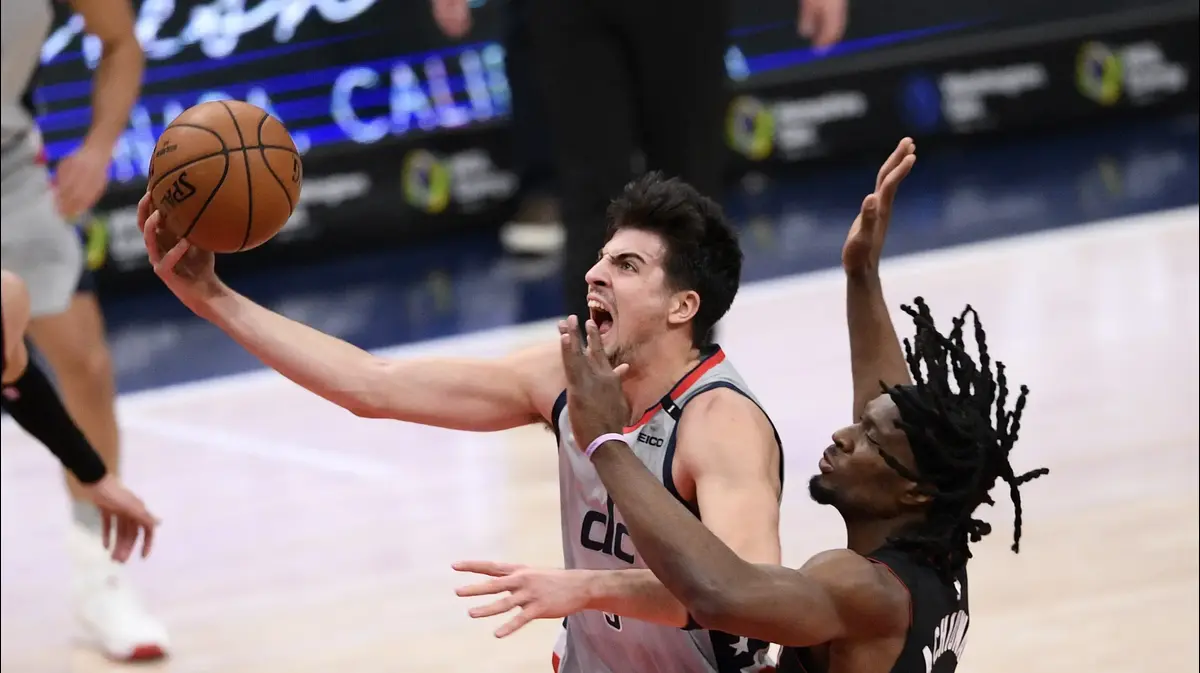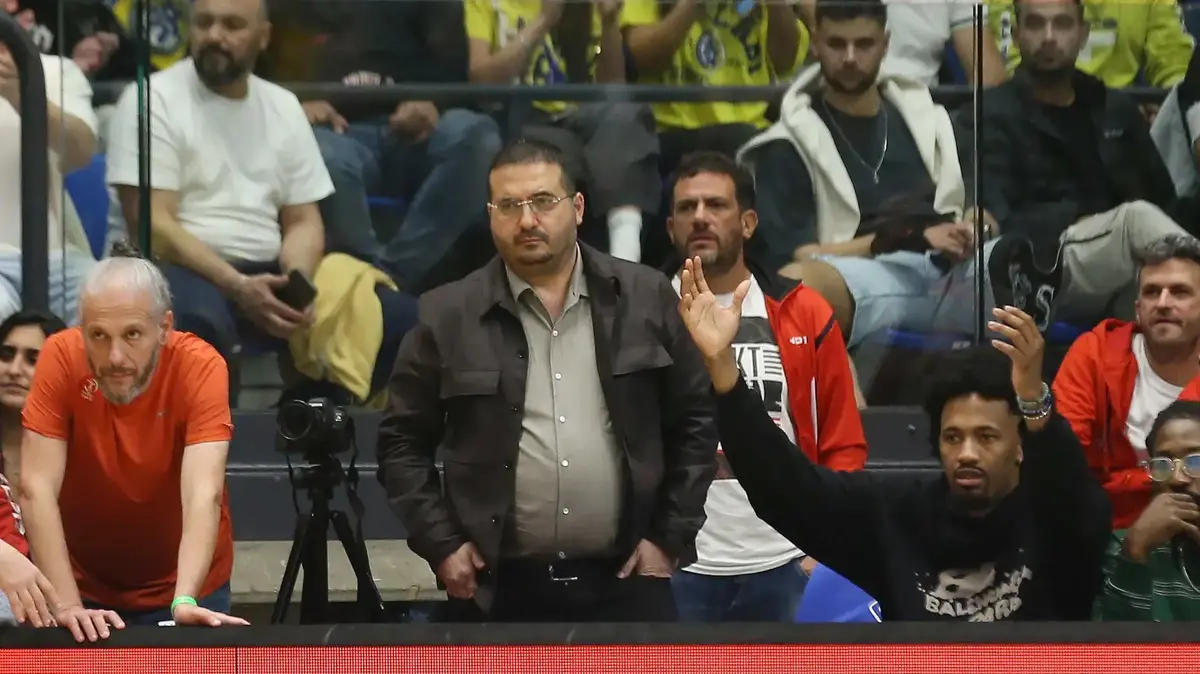Business
magazine
"Once upon a time every sports fan watched at exactly nine o'clock. Today that is no longer the case"
Conventional broadcasting is dead, even in the realm of the most addicted.
Daniel Shichman, who developed with WSC a cloud-based platform for creating automated videos in the field, talks about changing habits, the future and explains how when a summary of Abdia is broadcast in Israel, in Japan you get a different event at the same time
Tags
Danny Abdia
sport
David Rosenthal
Tuesday, January 26, 2021, 3:13 p.m.
Share on Facebook
Share on WhatsApp
Share on general
Share on general
Share on Twitter
Share on Email
0 comments
When we see Abdia, in Japan we see Roy Hachimura (Photo: AP, Nick Wass)
In 2011, four entrepreneurs, including Daniel Shichman who now also serves as CEO of WSC, developed an innovative smart cloud-based platform for creating short sports videos automatically. Together with him we tried to check what is the success factor, what has changed in sports content in recent years, what the requirements are "Where the field is going in the coming years.
" The company has developed a platform that allows sports content owners to automatically and in real time produce video content tailored to each platform or audience, "says Shikhman." Our system analyzes live broadcasts, identifies all in-game events and then enables customers Ours, which are sports leagues, broadcasters and clubs set rules for content production.
The system allows our customers to produce thousands of different videos in a single evening in a few minutes - this allows sports fans to receive quality content in a very fast time, which can not be produced manually.
In addition, the video will be adapted to any platform or target audience. "
More on Walla!
NEWS
So what exactly is "the business of us all" - watch and get to know
To the full article
Everyone tells the story from their own angle
The Israeli company's platform has been playing for a good few years on the 'field of the greats' and it doesn't really matter on which continent and which industry.
"We work with over 150 clients worldwide, the most notable of which are the NBA, the Euroleague, the German Bundesliga, the ESPN sports broadcasting body, the Japanese Football League in Asia and Australia, where we serve the Australian Open tennis tournament and the -Cricket Australia ".
Over the years it has become apparent that there is a big difference between the various entities that produce sports content, starting with the body's balance system with the viewer, the client's advertising platform and personalization for each viewer and viewer on demand.
One of the clear differences between a media body and a sports club is that even though the two bodies use the same 'product', each body focuses the story and wraps it up differently.
Daniel maps the differences between the bodies: "A media body tries to tell a comprehensive and balanced story and covers a large number of games, events and players and tries to appeal to a basic common denominator of the fans. In contrast, the various sports bodies look for content focus. When looking at a sports club, it focuses solely In the club's perspective, in the main players, in the stories and the content is very focused and so is the fan base.
Despite the differences, Shichman concludes, "Ultimately, each one is a media body trying to tell a story according to the angle that interests its viewers."
Ability to be sovereign over the content.
Daniel Shichman (Photo: PR, PR)
One of the prominent factors in the rise of sports content in recent years, and probably also one of its growth engines, is the many options for the simple viewer to watch games / excerpts from games at any given time, even during the event itself.
"All over the world, we are seeing a downward trend in the ratings of live sports broadcasts and an increase in the digital consumption of SHORT FORM content," says Shichman.
"Sport is much more accessible and if you add to that people have a lot more distractions, whether it's from the fact that the work is more demanding and through that there are just a lot of information and content platforms competing for our attention and not just sport. The key to getting fan attention is to allow as high a match. "The provision of content to any fan. Both in terms of the platform and in terms of time and the appropriate piece of content."
And that's probably the whole story of the coming years in sports content.
The ability of any body and it does not really matter if it is a sports league, sports club or media body to be the sovereign of the content.
If in the past, a sports club or media outlet would only produce a summary at the end of the game today each organization should produce several times as much.
"When a football game reaches the half, a summary must be produced in three different versions - each version will be a different length, with different graphics and sent to a different destination for example YouTube, the app and the site. If it was once clear that every fan would open the TV at nine o'clock to watch the game, today is not the case. "A fan is on a different platform with different preferences, and the role of the various broadcasters and leagues is to know how to create a maximum experience for every fan wherever he is."
From strengthening fans to rising ratings
In fact, the future of content is tailoring the content to the viewer according to dozens of criteria like residence, age, time, platform and the hand is still tilted for the near future.
One of the many mini-examples provided by Shichman shows the importance of this being applied today in the field.
"If we take the content of the Washington Wizards group as an example, in Israel there will be more emphasis on Danny Abdia and his moves, since the Israeli audience is more interested in him. In Japan, on the other hand, the emphasis will be on Roy Hachimura."
Huge amounts of content are tailored to the viewer according to thousands of criteria and with special requirements.
Other platforms based on artificial intelligence and a thriving cloud are here to stay and expand and also serve as an economic growth engine for customers.
"Our system allows customers to do much more with their content - things they could not have done before and serve sports fans optimally on any platform they are on."
And if that's not all, money is always an integral part of the content industry's growth.
"Once the league or broadcaster has the ability to produce any piece of content for any platform, they open up many new revenue sources that were not available before while constantly strengthening the brand with fans, leading to increased ratings, revenue from advertisers and the sale of broadcasting rights," says Shichman. .
Will the machine eventually replace man?
(Photo: ShutterStock)
Not everything is pink. There is great concern in the media and sports industry that the production of the content will be taken from the hands of man and will pass into the hands of the machine. After all, the work of producing any video, from adjusting the size, time, content, etc., becomes several times more difficult and tens of times more expensive for the media. Shichman strives to address the value he gives to customers: "Production costs are not the main advantage or part of our emphases when we present the system, nor the value that our current customers talk about."
We will actually address it. Even today, giant companies like Microsoft use bots to upload content automatically without human contact. This raises the question of when the person will be replaced by the machine when it comes to digital content and sports content in particular.
In this regard, Shikhman reassures those involved in the craft: "I think the goal is not to replace the person at any stage in the process. Just as in many areas the machines do not replace the person, but allow him to make better and faster decisions. "But let him decide what content should be created and then the system will produce them quickly and at a very high volume. At the end of the day, the person decides what content will actually be published to the fans and in what way."
However, Shikhman adds, it is precisely the various erogens that will determine who "wins the battle", the person or the machine: "There will be organizations that will rely 100% on all content that will be created and published immediately automatically, and on the other extreme there will be bodies that want to pass and criticize any content. Created automatically. "
Share on Facebook
Share on WhatsApp
Share on general
Share on general
Share on Twitter
Share on Email
0 comments









